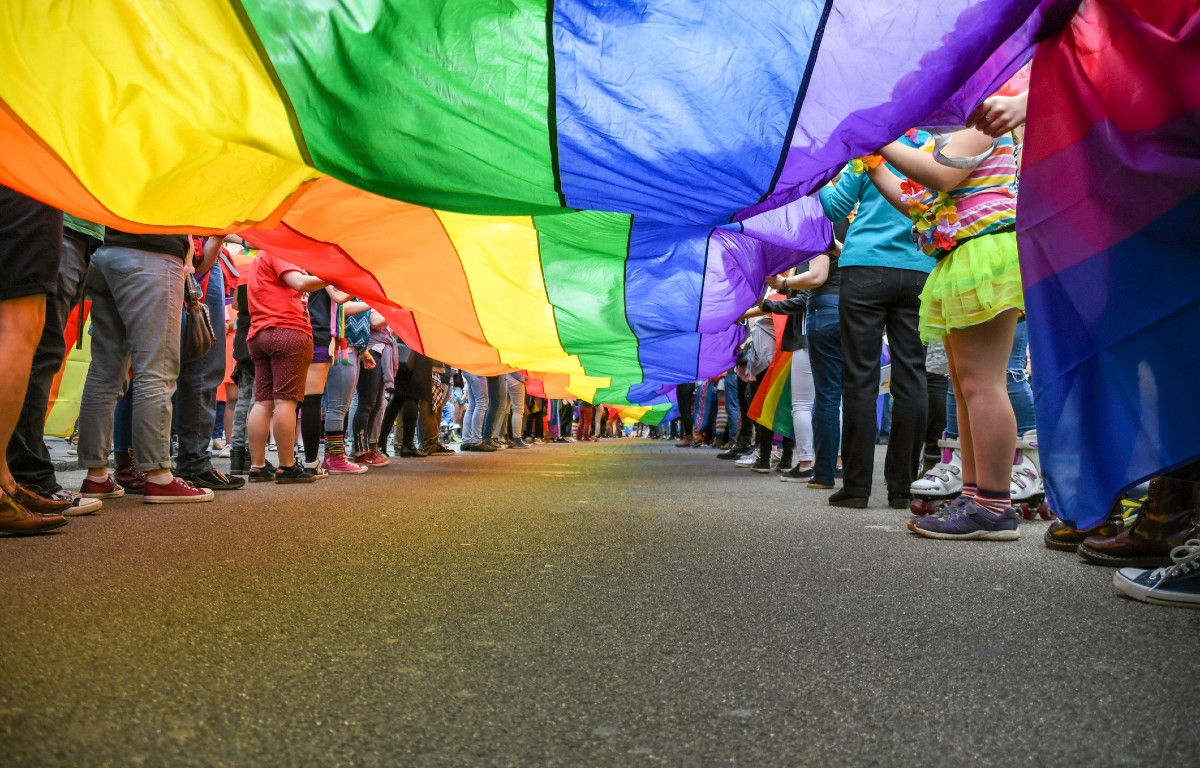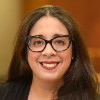 During June, the LGBTQ+ community around the world celebrates Pride. June 28 marks the 50th anniversary of the first Gay Pride march in U.S. history, originally called Christopher Street Liberation Day. It was held in recognition of the first anniversary of the 1969 Stonewall Uprising, when police raided the Stonewall Inn, a gay club located in Greenwich Village. Such raids were frequent and often resulted in physical and psychological violence to the patrons and employees of queer establishments. These abuses reflected the era’s homophobic attitudes: it was illegal in most states to be gay.
During June, the LGBTQ+ community around the world celebrates Pride. June 28 marks the 50th anniversary of the first Gay Pride march in U.S. history, originally called Christopher Street Liberation Day. It was held in recognition of the first anniversary of the 1969 Stonewall Uprising, when police raided the Stonewall Inn, a gay club located in Greenwich Village. Such raids were frequent and often resulted in physical and psychological violence to the patrons and employees of queer establishments. These abuses reflected the era’s homophobic attitudes: it was illegal in most states to be gay.
On the night of the uprising, Marsha P. Johnson, a Black transgender drag performer, and Sylvia Rivera, a Latina transgender woman, along with fellow patrons and community members, fought back, resulting in six days of protests and confrontations with law enforcement. Decades later, Stormé DeLarverie, a self-described butch lesbian who was present, said, “It was a rebellion, it was an uprising, it was a civil rights disobedience—it wasn’t no damn riot.” Stonewall was not only about protesting police brutality, but about the fight for equality as well, proving a catalyst for advancing the LGBTQ+ rights movement.
While this movement has brought about change, cisgender gay and lesbian whites have benefitted the most in terms of social status and legal protections. Gay, transgender, and gender nonbinary people of color continue to be subjected to harassment and discrimination both from within and outside the LGBTQ+ community. As the nation struggles to face and correct centuries of systemic racism, it’s also a time to reflect on the intersection of race and the fight for LGBTQ+ rights.
As educators and students at Einstein deeply devoted to improving human health, we have grappled with the effects of the coronavirus pandemic over the last few months and how it has devastated much of our Bronx community. We have witnessed and experienced an incredible sense of loss and grief. This anguish serves as a cruel reminder of the intersectionality of systematized inequities and institutionalized discrimination in the United States. Two weeks ago the health of our LGBTQ+ community and others was further endangered. On June 12, the U.S. Department of Health and Human Services finalized a rule under section 1557 of the Affordable Care Act eliminating federal regulations that ensured nondiscrimination in healthcare for transgender people and LGB people, people who are pregnant or seeking an abortion, those who require healthcare services in a language other than English, and other marginalized groups.
For LGBTQ+ people, the fear or threat of discrimination has immeasurable health consequences, whether at the hands of health professionals, medical first responders, or law enforcement officials assisting in medical emergencies. Actively eliminating protections under the law undermines trust and confidence in public health systems and only further exacerbates health disparities. This is particularly true for Blacks, those of indigenous origin, and other people of color (BIPOC) who are further marginalized and discriminated against.
This month, as we commemorate their bravery, resilience, and resistance to brutality and injustice, it is important that Pride be more than a celebration, but a rallying call to stand together in solidarity with those still oppressed by injustice and inequality. The LGBTQ+ Liberation Movement would not exist if not for the work of BIPOC, transgender and gender nonbinary, and socioeconomically disadvantaged persons fighting for equity under the law. Despite their contributions, societal gains and legal rights for LGBTQ+ people have not been equally shared. Institutionalized racism and systematized prejudices and biases have contributed to the exclusion of the community’s BIPOC. In order to redress these inequities, whites and non-Black people of color must be brave, intentional, and authentic in their allyship. It will take more than completing an online module, sharing a post via social media, using a hashtag, or taking part in a well-intended but solely performative act to make amends and address inequity. We will need to embrace the discomfort that we may feel, acknowledging that any such feelings we experience will be momentary and insignificant in comparison to the trauma endured by BIPOC in our society.
It’s important to note that we ourselves want to be better educated while striving to be authentic allies in the fight for social justice. We are grateful to be a part of a medical school community whose students have come together as the Einstein Student Collective for Action on Diversity with the goal of educating others about these issues. The collective joins with other groups on campus such as PRIDE, the Student National Medical Association, the Latinx Medical Student Association, the Einstein Minority Student Association, White Coats for Black Lives, the Asian Pacific American Medical Student Association, and the Society for Advancement of Chicanos/Hispanics and Native Americans in Science, among others, to lead this fight. It also encourages those at Einstein who have supported in silence to use their privilege to initiate change, support our students and colleagues, and actively participate in fostering a more welcoming and inclusive campus community.
So how can you be a good ally? Here are some responsible actions you can take in support of BIPOC in the LGBTQ+ community and beyond:
- Learn about these issues without relying on BIPOC to provide that education and assuage guilt.
- Read Black authors and critical theorists.
- Support Black-owned businesses.
- Follow BIPOC leadership while participating in protests and direct actions. For example, white allies are often asked to walk along the margins of protests and parades, to place their bodies between police and vulnerable BIPOC. They are also discouraged from taking photographs and sharing pictures without consent.
- As conversations about anti-Black racism move to center stage, be mindful of the work that is already ongoing.
- Most fundamentally, in thought and action, check your privilege and uplift BIPOC voices.
We realize that this work can be uncomfortable, but it still needs to get done. Those who fought back on the night of June 28, 1969, did so not for themselves, but for every person being abused, harassed, and oppressed. We owe them an enormous debt that can be paid only in action, not merely in words.
Authors (In alphabetical order):
 Irene Blanco, M.D., M.S., Associate Dean for Office of Diversity Enhancement
Irene Blanco, M.D., M.S., Associate Dean for Office of Diversity Enhancement
 Patrick D. Herron, D.Be., Chair, Einstein’s LGBTQIA Health Curriculum Working Group
Patrick D. Herron, D.Be., Chair, Einstein’s LGBTQIA Health Curriculum Working Group
 Drury Mcalarney, PRIDE Board and LGBTQIA Health Curriculum Working Group
Drury Mcalarney, PRIDE Board and LGBTQIA Health Curriculum Working Group
 Elise V. Mike, M.S., Founder of Einstein’s White Coat for Black Lives and Co-Founder of the Einstein Student Collective for Action on Diversity
Elise V. Mike, M.S., Founder of Einstein’s White Coat for Black Lives and Co-Founder of the Einstein Student Collective for Action on Diversity
 Nupur Shridhar, PRIDE Board and LGBTQIA Health Curriculum Working Group
Nupur Shridhar, PRIDE Board and LGBTQIA Health Curriculum Working Group

